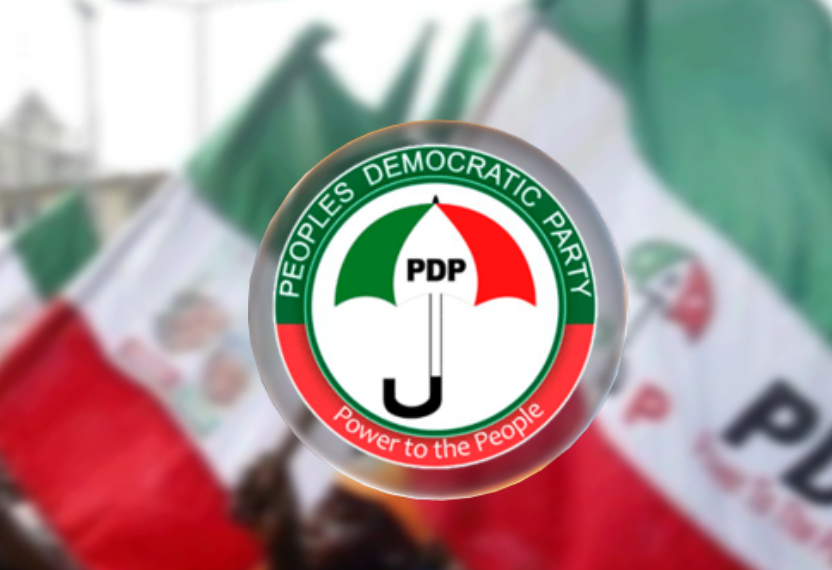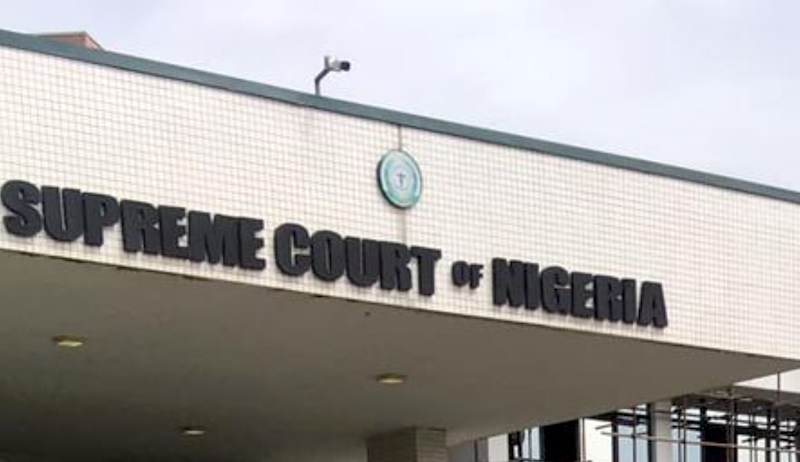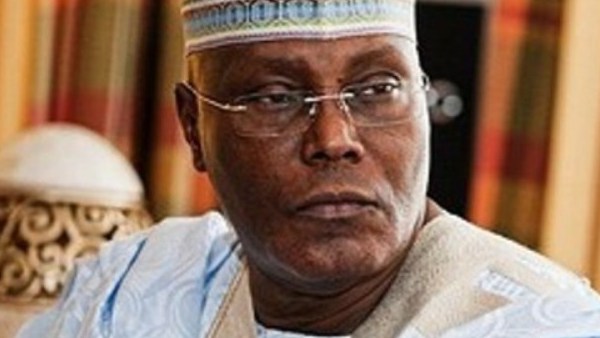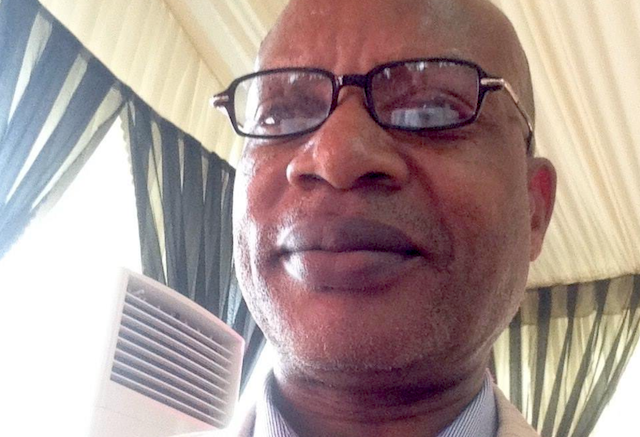By Ehichioya Ezomon
In weeks, the Supreme Court may be called upon to decide whether to admit new evidence on appeals from the Presidential Election Petitions Court (PEPC) that ruled on petitions from the February 25 election.
The five-member Tribunal dismissed the petitions by opposition candidates and their parties, seeking to upturn the Independent National Electoral Commission (INEC) declaration of Bola Tinubu of the ruling All Progressives Congress (APC) as winner of the poll.
Tinubu defeated 17 candidates, including former Vice President Atiku Abubakar of Peoples Democratic Party (PDP), former Anambra State Governor Peter Obi of Labour Party, and former Kano State Governor Rabiu Kwankwaso of New Nigeria Peoples Party (NNPP), who emerged 1st, 2nd and 3rd runners-up, accordingly.
Tinubu was inaugurated on May 29 as the 16th President and Commander-in-Chief of the Armed Forces of Nigeria.
Dissatisfied, Atiku and Obi (and the Allied Peoples Movement (APM)) petitioned the Tribunal to be declared President, claiming to have scored the majority of lawful votes, and secured 25% of votes cast in at least 24 States and the Federal Capital Territory (FCT), Abuja.
In the alternative, Atiku and Obi called for ouster of President Tinubu, as unqualified to contest the poll, unable to secure the highest number of lawful votes, and for INEC’s failure to comply substantially with the provisions of relevant laws in the conduct of the election and return thereof.
But the Tribunal dismissed the consolidated petitions by Atiku, Obi and APM as without merit, and affirmed Tinubu as the duly elected President of Nigeria.
Atiku and Obi intend to appeal to the Supreme Court, to reverse the judgment they quarrel with its findings on fact, and not doing substantial justice to their petitions.
Specifically, Atiku’s queries the Tribunal’s failure to properly evaluate evidence he placed before it, including Tinubu’s academic records from Chicago State University (CSU) in the United States.
Atiku’s filed a subpoena application to depose CSU, to authenticate Tinubu’s certificate(s), and explain the discrepancies observed in the records.
He also ferrets out facts, such as documentation for Tinubu’s passport, visa, social security card, driver’s license and payment of tuition fees.
Atiku wants the fresh evidence to include in his appeal to the Supreme Court, as he alleges that Tinubu forged the certificate(s) he presented to INEC in 2022, for the February poll, even as Tinubu denies same, and states that he attended CSU (1977-1979), with the School confirming this to inquisitors.
Indeed, CSU has deposed to an affidavit in court, affirming Tinubu’s attendance and graduation at the School; the certified certificates and diplomas it awards; and the discrepancies in Tinubu’s records it blames on human errors that don’t impeach their authenticity.
Two confirmations of Tinubu’s attendance at CSU surfaced lately: The University released Tinubu’s transcripts, showing his scores in 17 subject areas, and the CTC of his GCE ‘A’ & ‘O’ Levels results; and a reporting by CBS News (CBS Broadcasting Inc.), quoted CSU as stating that it’s “confident in the veracity and integrity of their records regarding Tinubu’s completion of graduation requirements and degree certificate.” (The statement was widely published in Nigerian dailies and on social media at the weekend)
Profoundly, the academic transcripts indicate that of the 17 subjects for evaluation, Tinubu had ‘As’ in 12, ‘Bs’ in four and “C” in one.
Despite these disclosures, Atiku sources for fresh evidence in his avowal to appeal to the Supreme Court on or before September 20.
Can the Supreme Court admit new evidence to sack or disqualify Tinubu from the February 25 poll?
Put succinctly, does the Supreme Court entertain additional evidence on matters on appeal before it, as it’s virtually an appellate body?
Certainly, the Supreme Court has power to entertain extra evidence on appeals, drawing from Order 2 Rule 12 of the “Supreme Court Rules 1985” (as amended).
Onnoghen JSC, I T Muhammad JSC and Oguntade JSC (as they were then) state instances in which Order 2 Rule 12(1) applies to admit further evidence, and how to check frivolous applications that seek to remedy alleged anomalies at the trial stage.
The following excerpts are taken from a 2019 article on, “The Supreme Court’s Power To Take Fresh Appeal,” written by a Legal Practitioner, Oluwakemi Adeyemi, and a publication of LawGlobalHub.com.
Onnoghen observed in Ehinlawo v. Oke & 2 Ors (2008) that: “A party, who wishes the court to receive the evidence of witnesses (where they were not called at the trial) or to order the production of any document, exhibit or other thing connected with the proceedings in accordance with the provisions of section 33 of the Act (Supreme Court Rules), shall apply for leave on notice of motion prior to the date set down for the hearing of the appeal.
“It is settled law that it is within the discretion of the court to decide whether or not to admit further/additional evidence on appeal. It is also settled that for the court to exercise that discretion one way or the other, it must act not only judicially but (also) judiciously.
“It is in an effort at attaining the standard of exercising its discretion judicially and judiciously that the courts have set down certain principles/conditions as guides. The principles are: 1) the evidence sought to be adduced must be such that could not have been with reasonable diligence obtained for use at the trial; 2) the evidence should be such that if admitted would have an important, not necessary (sic necessarily) crucial effect on the whole case, and, 3) the evidence must be such that it is apparently credible in the sense that it is capable of being believed and it need not be incontrovertible — see UBA Plc v. BTL Ind. Ltd. (2005) 10 NWLR (Pt. 933) 356 at 370–371. The above conditions must co-exist for the court to exercise its discretion in favour of the applicant.”
Equally, I T Muhammad JSC, stated that: “The trite position of the law is that where the Court of Appeal wrongly disturbed any finding of fact of a trial court, the Supreme Court will not hesitate in restoring that finding. See: Board of Customs and Excise v. Barau (1987) 10 SC 48.
“Finally, on this issue, I may have to reiterate the function of an Appellate Court on questions of facts. It is mainly limited to seeking whether or not there was evidence before the trial court upon which its decision on facts was based; whether it wrongly accepted or rejected any evidence tendered at the trial; whether evidence called by either party to the conflict was put on either side of the imaginary scale and weighed one against (the) other.
“In other words, whether the trial court properly evaluated the evidence, whether the trial court correctly approached the assessment of the evidence before it and whether the evidence properly admitted was sufficient to support the decision upon the inference drawn therefrom. This is the only way and procedure open to an appellate court in the consideration of an appeal brought before it.”
However, Oguntade JSC advises in UBA PIc. v. BTL Ind. Ltd. that the court should weigh the “reasonableness of the explanation (by applicant) as to why the documents, though available at the time of trial, were not tendered therein.”
In the learned Lord’s words: “Human experience shows that we often get wiser after an event. When judgment has been given in a case, parties with the advantage of what the court said in the judgment get a new awareness of what they might have done better or not done at all. If the door were left open for everyone who has fought and lost a case at the court of trial to bring new evidence on appeal, there would be no end to litigation and all the parties would be worse for the situation.
“For the appellant to seek to adduce the documents as additional evidence, it means they are relevant to his case at the trial and being so relevant, it was the duty of the appellant to deliberately seek and obtain them…”
If the fresh evidence Atiku seeks from Tinubu’s academic records was relevant to his petition at the Tribunal, how much efforts did he put in to obtain the documents? Or “is it a case of becoming wiser after the event (the PEPC judgment),” as Oguntade JSC avers?
Atiku may be playing for luck, as his U.S. lawyer, Alexandre de Gramont, doubts the Supreme Court will accept fresh evidence, he told Judge Gilbert at the hearing of the application in the U.S. on September 12.
Mr Gramont said: “Your Honour, we don’t know whether the Nigerian Supreme Court would be receptive to the new evidence or not, but we just want to be able to present the new evidence to them from CSU,” adding that the Tribunal (PEPC) lacked the evidence from CSU for its ruling on September 6.
A viral report from the court session posted on social media quoted Judge Gilbert as asking if CSU’s authorities could vouch for Tinubu’s certificate under oath, to which CSU’s lawyer, Michael Hayes, reportedly hedged, and said, “they don’t know where” (and how Tinubu obtained it).
But this seems to contradict prior statements – corroborated lately by CSU’s releases, including Tinubu’s transcripts – that Tinubu attended and graduated from CSU.
However, Christopher Carmichael, who held brief for Tinubu’s lawyers, said Tinubu’s records were authentic, as confirmed repeatedly by CSU.
Mr Carmichael said there wasn’t need to depose CSU, as “Atiku’s on a fishing expedition,” knowing that the Supreme Court won’t entertain fresh evidence.
Atiku’s lawyer, Alexandre de Gramont, admitted as much, saying Atiku had Tinubu’s “documents” which he wanted CSU to confirm their authenticity, and explain discrepancies therein.
After the lawyers’ had argued the application, Judge Gilbert adjourned for ruling, or to allow for further arguments, and asked the lawyers to study the court’s records, and effect any necessary changes.
That court ruling is expectantly awaited by the Atiku and Tinubu camps, and the generality of Nigerians, who want the final word from the Supreme Court on who truly won the February 25 election!







